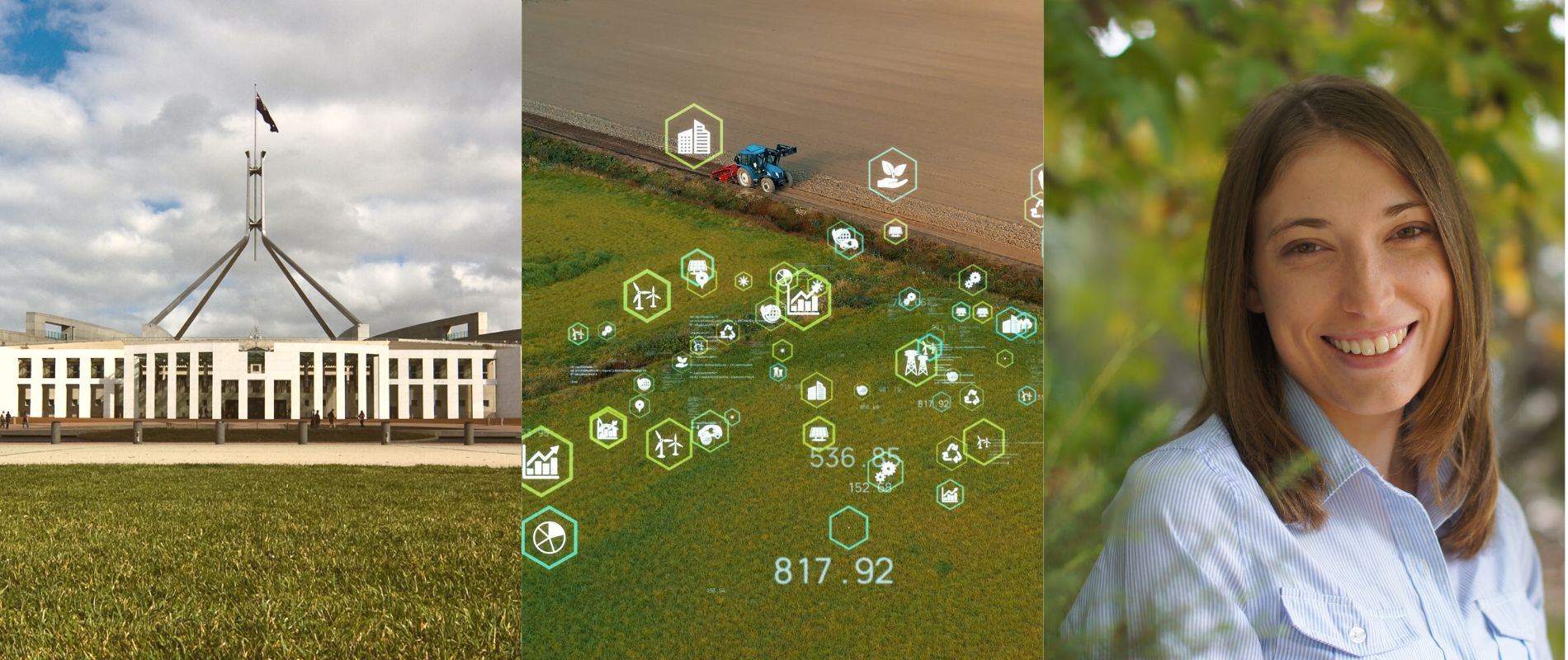On the last working day of April, I participated in a stimulating lunchtime discussion (Summit Digest) on the main takeaways from the Australian Agritech Association’s recent 2022 National Agritech Summit. Dr Anastasia Volkova (CEO and co-founder at Regrow) did a great job at moderating the discussion to explore how each of the panel saw the future of the emerging agri-tech sector in Australia. Also on the panel were Jins Kadwood (CTO at AgriDigital) and Cal Archibald (Director at Beanstalk AgTech). A huge shout out to Tracey Martin and Kara-Glenn Worth for organising both the Summit and the debrief, each of which was focused on how Australia can develop a vibrant agri-tech sector that: (1) is at the forefront of developing cutting edge technology needed to ensure that Australian agriculture is both profitable and environmentally sustainable; and, (2) provides high value jobs across the nation, not just in cities but also in the regions. The issue of Australia’s agri-tech sector “serving agriculture but not being agriculture” featured – something that politicians and policy makers need to get their heads around. Politicians such as Paul Fletcher (Minister for Communications, Cities and the Arts) and Ed Husic (Shadow Minister for Industry and Innovation) – both of whom attended the Summit. While the automatic response of government has been to see the agri-tech sector as only relevant to the Dept of Agriculture, Water and Environment (DAWE), in reality it is just as relevant to other departments, such as Dept of Industry, Science, Energy and Resources (DISER) and Dept of Foreign Affairs and Trade (DFAT). Thus, if the Federal Government is to help shape the emergence of a vibrant agri-tech industry – and, in doing so, add $40B per annum value to the Australian economy – they will likely need to take a whole-of-government approach (e.g. through setting up a task force within Prime Minister and Cabinet) when developing policy. And, as Jins said in the discussion, we need to decide what ambitious outcome we are trying to achieve in the long term, and what strategies are needed to achieve that outcome. For Jins, the outcome was for Australia to be a global leader in the development of cutting-edge agri-tech – technology that will enable us to feed a rising global population in ways that are environmentally sustainable and profitable.
Last week was also one when CEAT co-hosted (with ACIAR and Wharf42) one of three workshops to discuss issues that would be the focus of the 2035 Oceania Summit in Auckland, New Zealand later this year. The other two workshops will take place in Adelaide (3 May) and Sydney (10 May) – each will be a great opportunity to hear from experts about the challenges of climate change for the agri-food system in the Oceania region, and how technologies can play a role in addressing those challenges. We used the Canberra workshop to provide participants with an update on how the climate system was changing, explore the extent to which the agri-food sector contributes to greenhouse gas emissions, and to discuss ways in which modifications to the agri-food system can help reduce the scale and speed of future climate change. You can read more about the workshop, and get links to some of the content, here.
As regular readers will also know, CEAT has as one of its goals the need to understand the nature of complex issues facing the agricultural sector, and to be at the forefront of developing solutions to those challenges. In some cases, the focus will be applications of technology and/or policy development to address issues such as drought. It was with these issues in mind that CEAT partnered with Policy Partners on 19 April to host a workshop on drought resilience in the agricultural context. The workshop was the first of three and discussed drivers for agri-transformation, the challenges facing the agricultural sector with regards to water, and the policy and science agenda for drought resilient agriculture. Please keep an eye out for the next two workshops – one in late May and the last in June/July.
April was also a month when I attended the National Farmers Federation’s ‘Sustaining the Nation’ conference. It was a fantastic event where we heard a broad range of voices speak about the challenges facing the agricultural sector, and initiatives being used to address those challenges. Climate change, biosecurity, work force issues and integrity of supply chains were some of the topics that were highlighted at the conference. The conference was also a fantastic opportunity for attendees to have access to national and global leaders in the agri-sector.
Finally, congratulations to Dr Rachael Rodney Harris who was recently awarded a Royal Agricultural Society (RAS) of NSW Youth Medal. The RAS Youth Medal recognises young people under the age of 35 for their contribution to the RAS of NSW, a section of the Sydney Royal Easter Show or industry. Rachael leads CEAT’s Innovation Training Initiative. She is also an academic in the Fenner School of Environment and Society, where she convenes the Masters of Agricultural Innovation. I am super proud to have Rachael as part of the CEAT team.
Oh, one more thing – also super proud that Professor Graham Farquhar from ANU was just announced as the world’s high ranked plant/agronomy scientist in 2022. In the same rankings, Australian plant/agronomy scientists were ranked #2 in the world (after USA and before UK, Germany, Canada and China) – a testament to the world-class research we have in Australia.
Best wishes. And make sure you read our CEAT newsletter!
Thank you.
Owen Atkin, Director, CEAT
